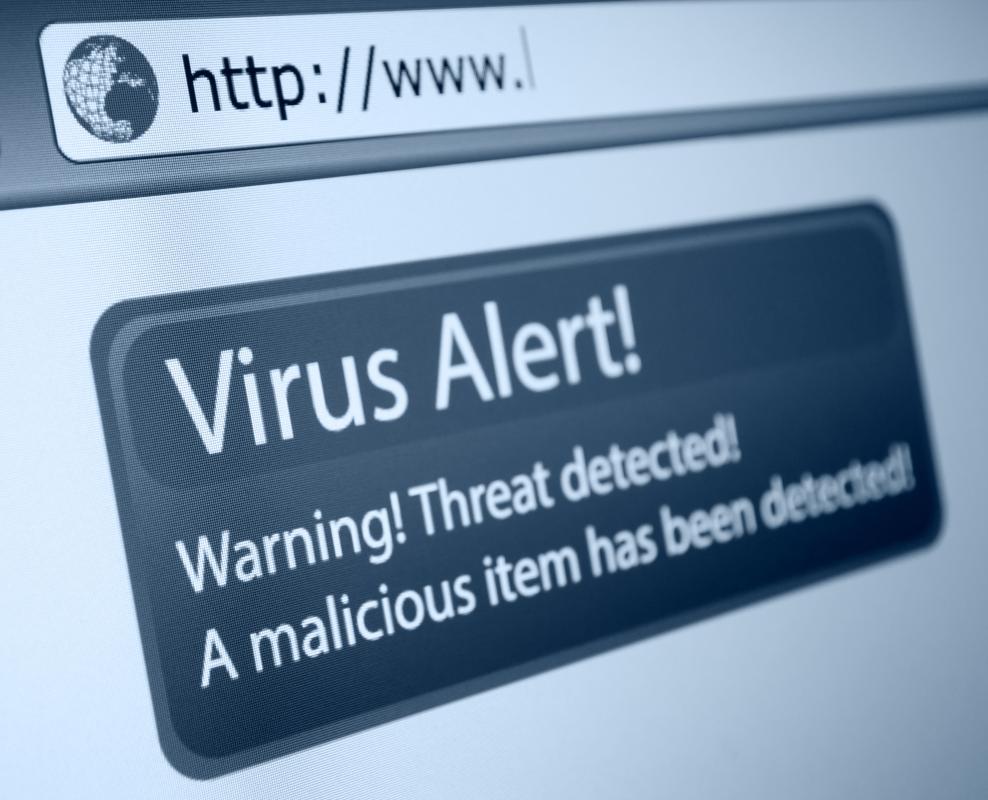At EasyTechJunkie, we're committed to delivering accurate, trustworthy information. Our expert-authored content is rigorously fact-checked and sourced from credible authorities. Discover how we uphold the highest standards in providing you with reliable knowledge.
What Is a Virus Hoax?
A computer virus hoax is a message that a computer user receives regarding a computer virus. Usually this message is received in an email that falsely warns of a nonexistent virus. Many of these hoaxes claim the receiving computers will suffer a dire fate if they come in contact with the imaginary virus. These hoaxes are generally harmless, but some may instruct users to delete certain legitimate files on their computers.
A true computer virus is a type of malicious software, or malware, that can cause serious problems for a computer and its user. Some computer viruses can damage a computer's memory or steal a user's personal information. A computer virus hoax, on the other hand, is usually just that: a hoax. This hoax tries to deceive computer users into thinking that a non-existent virus truly exists.

The information about a virus hoax is often received in a forwarded email message. Some of these hoaxes may claim that the recipient of the email is already infected with a virus. Others, however, will simply warn computer users of a virus lurking around the Internet.
A virus hoax email will often make outrageous claims regarding what the virus will do once it has infected a computer. For instance, some virus hoaxes may claim that a particular virus will completely erase a computer's memory. Other, more outrageous, virus hoaxes may even claim that the virus will do physical damage to a computer, which is nearly impossible.

Many times, a virus hoax email contains information from supposed authoritative sources. It may state a certain computer expert or anti-virus manufacturer claims that this is the “worst computer virus ever.” This is meant to lend credibility to the hoax, and often causes people to believe the false claim.
Virus hoax emails will also often urge the receiver of the message to forward it to everyone he knows. In fact, this type of message often received as forwarded chain email. Computer users who are genuinely concerned for their friends, family, and colleagues will often forward these computer virus threats without realizing that they are hoaxes.

Usually, a virus hoax is harmless. A few of these hoaxes, however, can possibly cause damage to a user's computer. One famous virus hoax, the jdbgmgr.exe hoax, urged computer users to delete a legitimate Microsoft® file, the Java® Debugger Manager. This hoax also claimed that the virus could not be detected by regular anti-virus software and needed to be removed manually.
AS FEATURED ON:
AS FEATURED ON:













Discussion Comments
Social media and emails are the worst culprits for spreading virus email messages. Most computer users who are even a little savvy delete these and go on, but for some people -- especially elderly users -- these messages can be frightening.
These hoaxes, like most hoaxes, prey on the lack of knowledge most people have about how computers work. I had a boss who used to freak out every time she got an email about a virus. She would place a frantic call to our IT guy, who would tell her it was a hoax and to hit the delete button. She knew nothing about computers, so she was a perfect target.
Post your comments